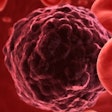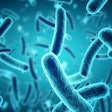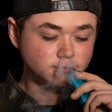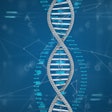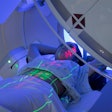
While not all oral lesions become malignant, the majority are removed surgically. Even so, as many as a third of patients with cancerous oral lesions experience recurrences.
So researchers have been trying to find new therapies that can suppress the conversion of precancerous to cancerous cells and also alternatives to the surgical removal of such lesions.
After nearly 30 years studying oral cancer prevention strategies, Susan Mallery, DDS, PhD, a professor at the Ohio State University (OSU) College of Dentistry, now believes that hope lies in a combination of black raspberries and fenretinide.
 Susan Mallery, DDS, PhD, Ohio State University
Susan Mallery, DDS, PhD, Ohio State UniversityDr. Mallery -- in conjunction with Peter E. Larsen, DDS, a professor of oral and maxillofacial surgery at OSU, and Gary D. Stoner, PhD, a professor of medicine at the Medical College of Wisconsin -- conducted a pilot study using a topical application of a gel containing freeze-dried black raspberries on precancerous oral lesions. The gel application reduced clinical and microscopic premalignant features, according to the study results (Pharmaceutical Research, April 2010, Vol. 27:4, pp. 628-643).
Early results from an ongoing placebo-controlled study have demonstrated that only the gel of freeze-dried black raspberries shows clinical efficacy while the placebo is inactive.
"So far, so good with our gel trial results," Dr. Mallery said. "We now need to proceed with the molecular analyses -- specifically, effects on key genes responsible for regulated cell growth."
Ohio State University, which serves as the lead institution for this multicenter trial, is partnering with the University of Louisville in Kentucky and the University of North Carolina at Chapel Hill.
"Part of the biggest clinical challenge is that we cannot currently identify which lesions will progress to oral cancer," Dr. Mallery explained. "Having nontoxic and effective treatments options available would be a great benefit to both patients and healthcare practitioners."
Based on the known mechanisms by which berry compounds function at the cellular levels, researchers speculate that the promising gel trial results reflect activation of two related pathways -- apoptosis and terminal differentiation -- in the premalignant cells. The ultimate benefit is that damaged cells don't continue to divide and are therefore not retained.
The goal is for the raspberry compound, in a gel or mouthwash, to encourage the epithelium to differentiate, creating an impermeable barrier.
"That would be a home run," Dr. Mallery said. "And data support the fact that black raspberry's chemopreventives are indeed 're-educating' the cells to differentiate."
A one-two punch
While the black raspberry gel was effective in many patients, not all individuals responded equally well to gel treatment, which likely reflects interpatient differences in metabolism. So Dr. Mallery and colleagues, along with Steve Schwendeman, PhD, a professor of pharmaceutical sciences at the University of Michigan, opted to introduce a "lab bench" chemopreventive star -- the synthetic vitamin A compound fenretinide.
— Susan Mallery, DDS, PhD, Ohio State
University
Despite its promise in vitro, previous chemopreventive trials -- which relied upon fenretinide delivery in a pill form -- have not been successful, Dr. Mallery noted. These previous trial data strongly implied that systemic delivery did not deliver sufficient quantities of the drug to the precancerous oral lesions.
"It's a completely different compound and acts by a different mechanism, so it's a really nice one-two punch," she said. "Our thought would be it could really help benefit people who don't bioactivate an enteric recycle well."
To address this problem, Schwendeman formulated a patch that stabilizes fenretinide while facilitating drug delivery through the cornified surface to the targeted basal epithelial cells. Because fenretinide is a lipophilic drug, developing the means to stabilize and release it into an aqueous medium (saliva) was not a small task. Schwendeman's group also recently formulated a second-generation patch that incorporates additional agents to enhance uptake by the targeted cells.
A recent study using a rabbit model demonstrated feasibility of this strategy (Molecular Pharmaceutics, January 26, 2012). Therapeutic levels of fenretinide were achieved in rabbit oral mucosa without any evidence of systemic uptake. (Systemically administered fenretinide has previously been associated with deleterious side effects, Dr. Mallery noted.)
Phase zero studies
|
Oral cancer rate rising Oral cancer is one of the few cancers that are on the rise in the U.S. When found early, oral cancers have an 80% survival rate. Unfortunately, most oral cancers are found in late stages, when the five-year survival rate plummets to about 30%. Close to 37,000 people in the U.S. will be diagnosed with oral or pharyngeal cancer this year, resulting in more than 8,000 deaths, according to the Oral Cancer Foundation. |
The next step in the research involves phase-zero studies on normal, healthy mucosa, along with some bench studies to determine optimal dosing strategies for concurrent use of both of these compounds.
"We're getting a pretty good handle on what enzymes you need and how you metabolize the compounds, which will give a predictive indicator if you're going to be a good responder to the raspberry gel alone," Dr. Mallery said.
Due to the compounds' unique mechanisms of action, she and her colleagues anticipate that future chemopreventive strategies would use the fenretinide patch and black raspberry formulations in a complementary fashion. For example, the patch would provide targeted uptake to specific problem sites, such as current lesions or areas of high recurrence, while a black raspberry formulation could be used to treat the entire mouth.
"That way our patients could receive treatment for both visible and yet-to-develop lesions," Dr. Mallery said.
The raspberry gel and fenretinide will likely be used in alternate dosing strategies, she noted.
"If topical treatments such as a fenretinide-releasing patch can cause lesions to regress or delay recurrences, this strategy could change the way we currently manage precancerous oral lesions," Dr. Mallery concluded.












